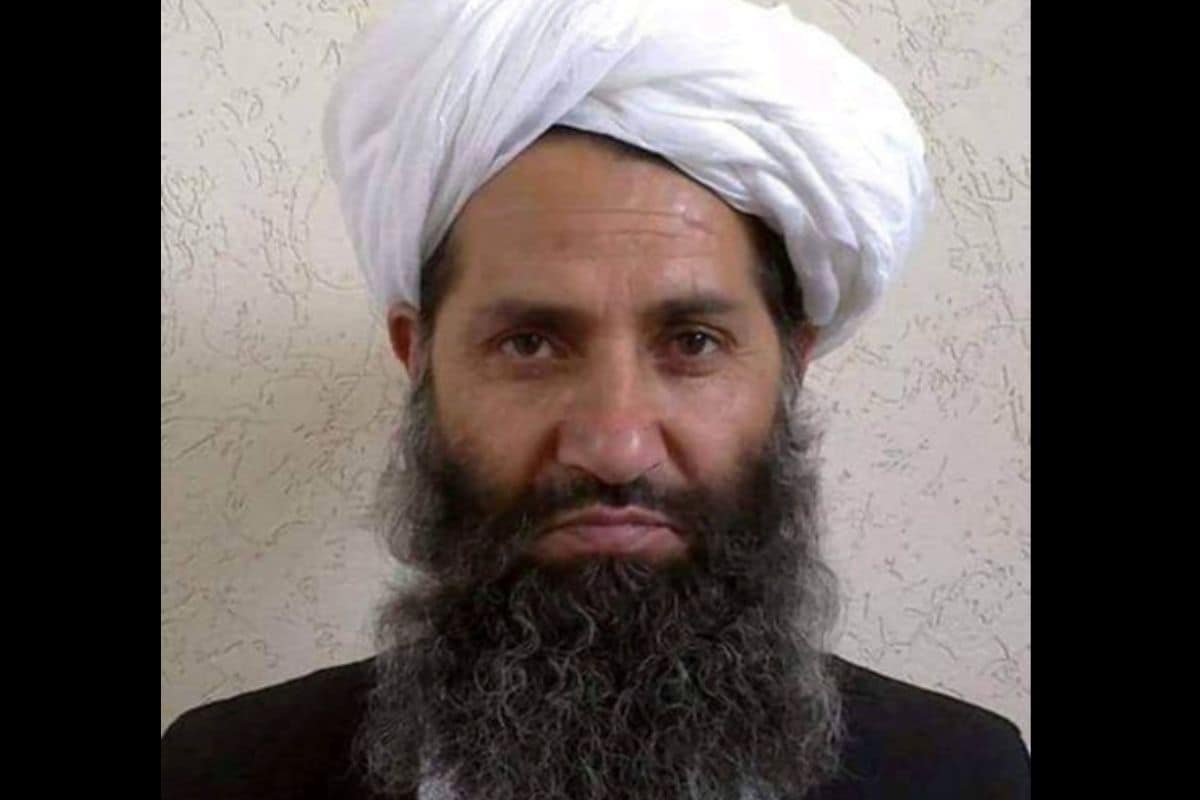Why Taliban is Looking for Image Makeover as Talks to Bring in Vital Reforms Fail at Kandahar Meet
Edited By: Oindrila Mukherjee
Last Updated: March 14, 2023, 10:15 IST

The extremist faction led by Afghanistan’s Supreme Leader Amir Hibatullah Akhundzada has rejected a fresh push by Taliban moderates seeking to loosen restrictions on women, open up space for the opposition and codify a constitution. (Image: Reuters/File)
The Taliban met in Kandahar this week for negotiations on reforms, including on women’s rights. The moderates are making an effort to have Supreme Leader Hibatullah Akhunzada replaced
The Taliban’s top leadership met in Kandahar this week to discuss vital reforms, including women’s rights, but the conclave ended in failure. The militant outfit is likely going in for an image rebuilding exercise even as the moderates in the organisation are making an effort to have Supreme Leader Hibatullah Akhunzada replaced, sources in Afghanistan said.
According to the sources, the extremist faction led by Akhundzada has rejected a fresh push by Taliban moderates seeking to loosen restrictions on women, open up space for the opposition and codify a constitution.
“Unfortunately, the discussions have failed,” a senior Afghan official told News18. “The Khalifa (a reference to interior minister and moderate leader Sirajuddin Haqqani) returned to Kabul on Saturday night.”
The hectic negotiations in Kandahar indicate that the Taliban is under immense pressure and is looking for an image makeover to show that it is moderate.
The negotiations are also a first step to give legitimacy to the Taliban as it is trying to change its interim government to permanent. But the militant group is divided into two parts now – one is trying to make a constitution and to bring other people into government and the other is made up of hardliners against reforms.
Sources said leaders like Sirajuddin Haqqani, Mullah Yaqoob, Abdul Ghani Baradar, Muttaqui Sheikh Dilawar and Abdul Kabir were those who favoured change. The Qatar group is weak but it wanted change, they added.
The Kandhari group considered to be hardliners – Akhundzada, Haj minister Noor Mohammad Saqib, director of science Farid, Chief Justice of the Supreme Court Abdul Hakim Haqqani, Kandahar governor Muhammad Yousuf Wafa – are against reforms in the group’s structure and policies, sources said.
The sources further said deliberations were ongoing for changing the education policy, which keeps women away from schools, colleges and universities. This includes the reopening of girls’ schools. The Kandahar group is against education as well, they added.
There is a concern that a major part of the reason the Taliban is facing a boycott since its Afghanistan takeover is due to the ban on women’s education. There was a major attempt by the youth to move to Turkey after the earthquake because of rumours that the country was taking Afghans.
Besides education, there are other restrictions on women. After the Taliban seized power in August 2021, they have been pushed out of many government jobs, prevented from travelling without a male relative and ordered to cover up outside home and not allowed into parks and banned from gyms altogether.
The Taliban recently banned women from working in non-governmental organisations. It has suspended university education for women and secondary schooling for girls. The United Nations has said the Taliban must immediately revoke its policies targeting women and girls in Afghanistan.
There has been mounting frustration within the organisation, especially on the policy of banning women from universities last December, which has caused a rupture in the internal structure of the Taliban government. CNN-News18 earlier reported that Baradar was emerging as the person most likely to replace Akhundzada if he is ousted.
Akhundzada has, so far, refused to reverse the ban and said he will not bow to international pressure. But the moderates have been unwilling to accept this position, arguing that international support was vital for Afghanistan.
It will, however, not be easy to remove Akhundzada as he enjoys the support of key governors and has loyalists in several branches of the government.
Read all the Latest News here
For all the latest world News Click Here

